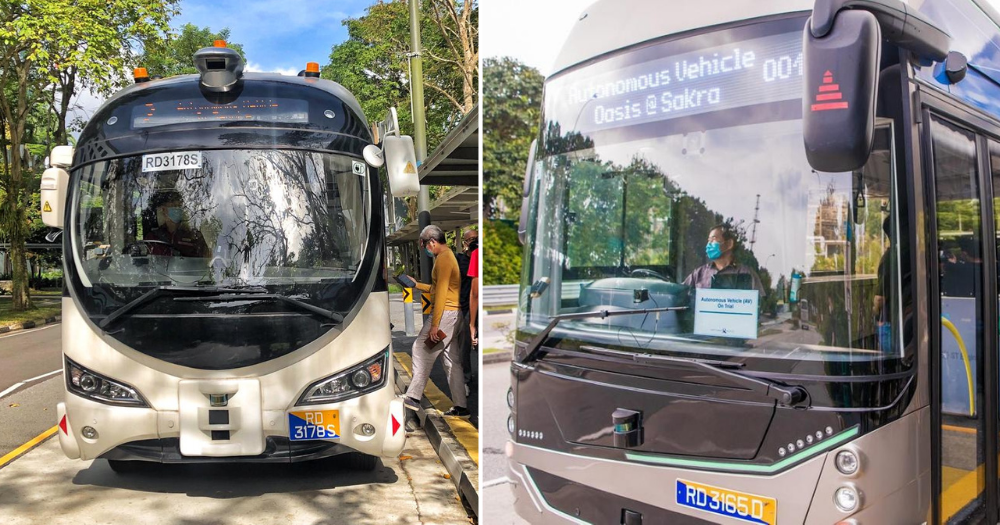As part of a move to commercialise autonomous vehicles (AVs), two driverless buses were deployed on Jan. 25, plying two routes in Singapore.
The deployment is part of a three-month trial by the Alliance for Action (AfA) on Robotics, which was convened by the Emerging Stronger Taskforce "to promote and accelerate sustainable deployment of robotics in Singapore."
Singapore Science Park
The buses, developed by ST Engineering, started operating on Jan. 25 at Singapore Science Park 2 and Jurong Island.
Commuters will have to pay for the bus service, and can book the bus on-demand via specific apps.
This will mark the first time autonomous buses are operating commercially in Singapore.
The bus at Singapore Science Park is 7m long, and seat up to 10 passengers, and will operate from 10am to 5pm on weekdays.
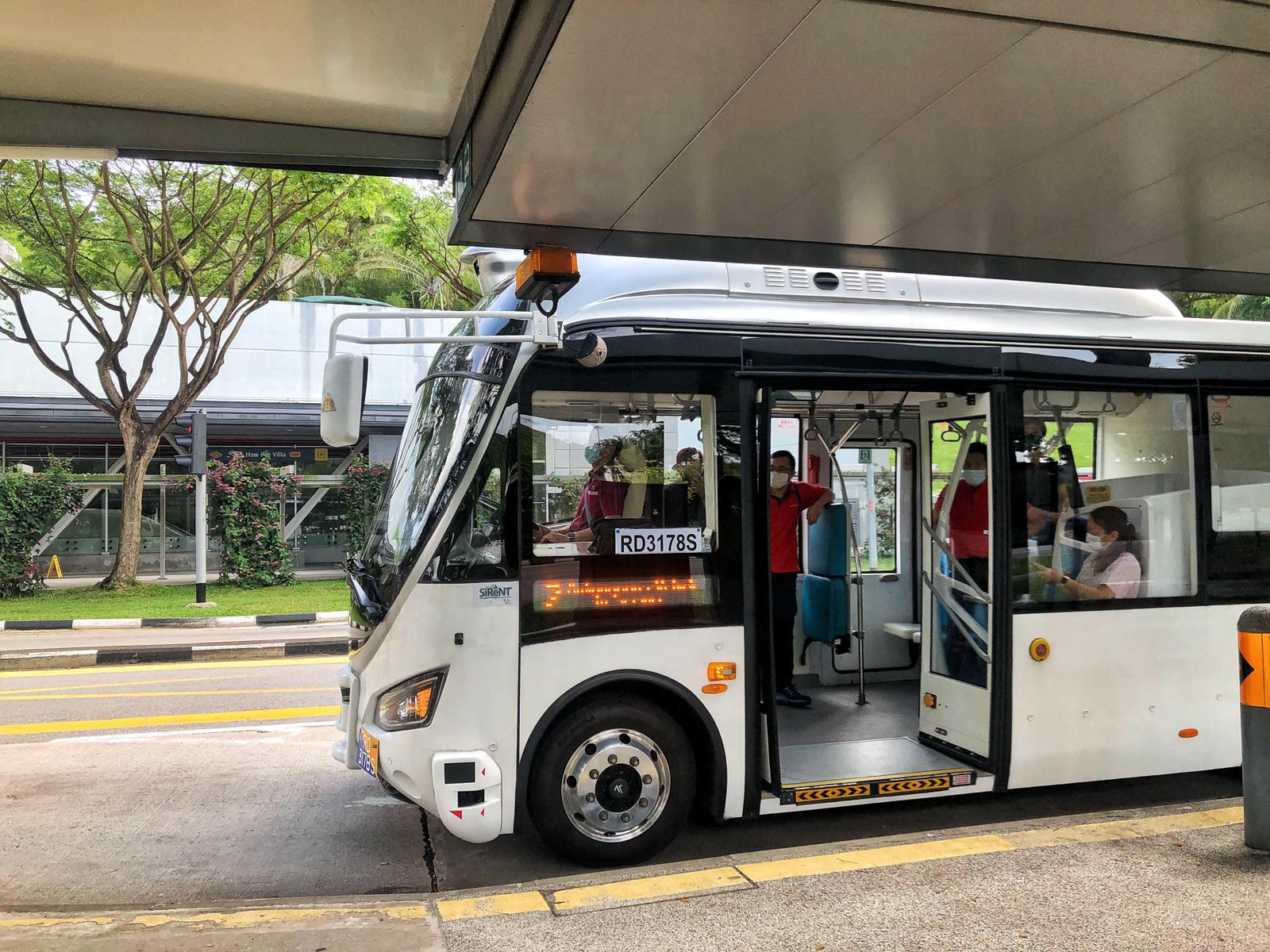 Photo from LTA / FB
Photo from LTA / FB
It will run from Haw Par Villa MRT station to The Galen, inside the science park.
Commuters can use the Zipster app to book their rides, which will cost a flat fare of S$0.20.
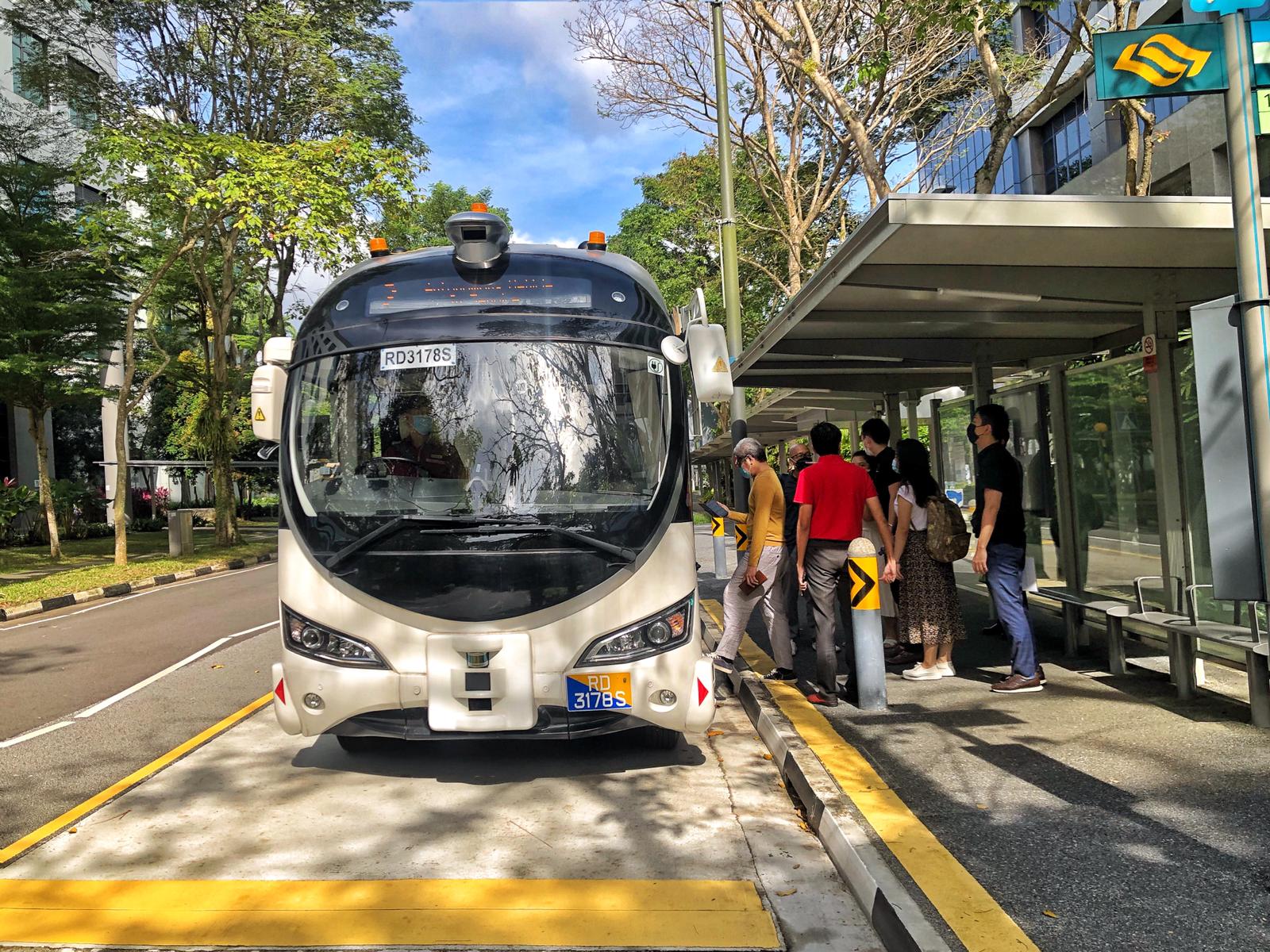 Photo from LTA / FB
Photo from LTA / FB
Jurong Island
Meanwhile, the autonomous bus at Jurong Island will take passengers on a 10-stop route around Sakra Loop.
The bus is 12m long and can seat 26 passengers, and will operate from 11:30am to 2:30pm on weekdays.
Commuters can book the bus using the SWATRide app, and rides cost S$1.
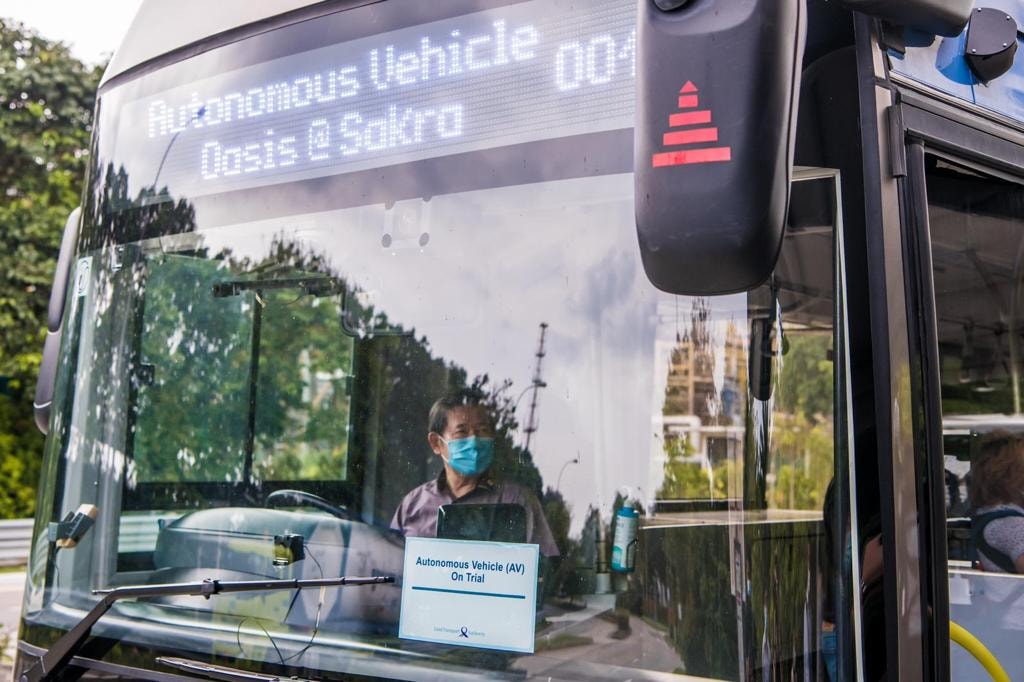 Photo from Desmond Lee / FB
Photo from Desmond Lee / FB
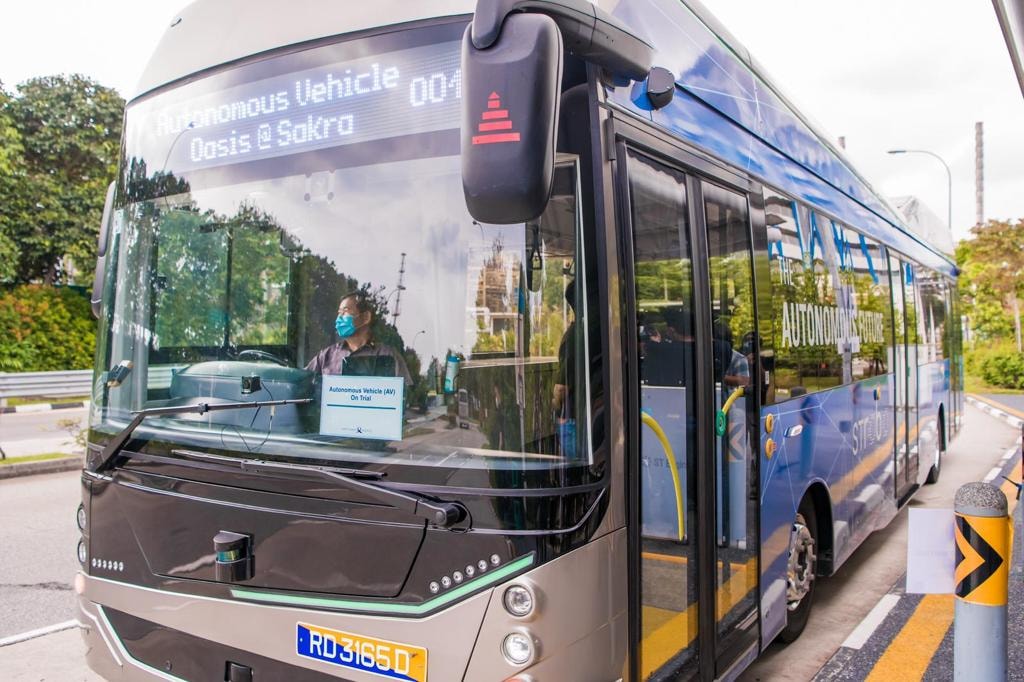 Photo from Desmond Lee / FB
Photo from Desmond Lee / FB
Although the buses are autonomous, CNA reported that a safety driver will be onboard to take over the wheel in case of emergencies.
For the bus at Science Park, the driver will also manually operate the vehicle after leaving the Science Park area while heading towards Haw Par Villa MRT station.
Public transport operators SMRT and SBS Transit will be in charge of operations for Science Park 2 and Jurong Island respectively.
The trial for both autonomous buses will last until Apr. 30.
Helps to alleviate manpower shortage
This pilot comes after a successful trial by ST Engineering for autonomous on-demand shuttle buses at Sentosa in 2019.
The buses ferried around 6,000 passengers over three months "without any incidents".
Minister for Transport Ong Ye Kung said the adoption of autonomous vehicles can help with manpower shortage in the public bus sector, as well as reduce the reliance on foreign labour, CNA reported.
However, he said that it might be a decade before autonomous buses are "running around HDB towns", and added that drivers would at the moment still need to be onboard in the event of "exceptional conditions".
AfA stated that they have also been working with trade unions to upskill and train bus drivers to take on other roles such managing commuter experience and overseeing the autonomous bus management system.
Totally unrelated but follow and listen to our podcast here
Top photo from
If you like what you read, follow us on Facebook, Instagram, Twitter and Telegram to get the latest updates.
